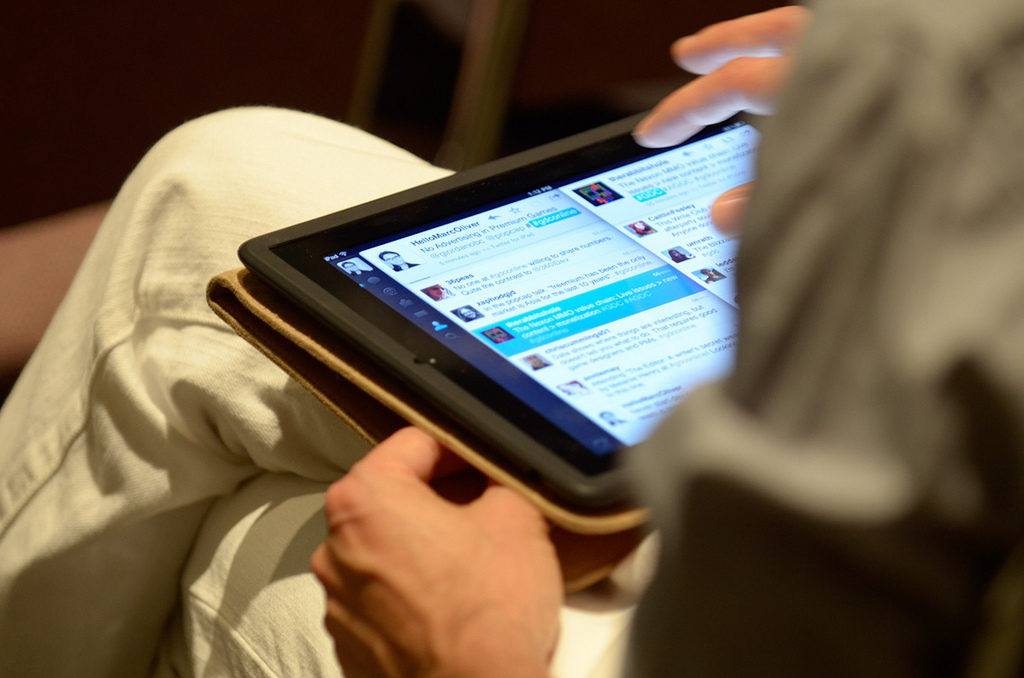A team of Australian researchers published an article in Psychiatry on the potential for mental health workers to integrate e-mental health into their practice. The team, which is composed of Anne Williams, Ellie Fossey, John Farhall, Fiona Foley and Neil Thomas, led focus groups with 37 mental health workers to ascertain their views about using online and e-mental health resources while interacting face-to-face with their clients. The participants outlined some challenges in implementing such interventions but were also able to perceive three main benefits of using e-mental health resources (directing, collaborating and empowering). The groups were seen as ready to grasp and implement e-mental health resources with their clients, which could potentially strengthen collaborative relationships with the people they aim to serve.
“It [using e-mental health resources] fits in very much with people being the holders of their information around their health, which is so important from a recovery perspective,” said one mental health worker. “They’re the expert on who they are and what’s going on for them.”

E-mental health resources have the potential to support clients on their path to self-management and recovery and could circumvent barriers such as lack of client access to evidence-based information. Clients could have access to a host of resources and coping behaviors, presented in a medium that is less hierarchical. Moreover, there is a demonstrated interest in the utilization of e-mental health resources among individuals diagnosed with a “serious mental illness” themselves, and it has been shown that implementation of such procedures would be feasible.
There has been a documented trend of face-to-face services being delivered in parallel with online interventions, rather than in an integrated way. Research on online interventions, in general, demonstrate that self-guided interventions often show a lack of sustained engagement, though this can be improved with scheduled support via email or over the phone. Both clients and mental health workers reported benefits from the utilization of a computerized program to help clients with self-management of their treatment.
The current study was part of a more extensive research program that developed online resources to be used on a tablet during meetings between clients and mental health workers, as well as online by clients on their own. The study was qualitative and centered around six focus groups totaling in 37 participants. Participants were individuals who worked in clinical or community mental health service positions. Two of the study authors facilitated the focus groups, aiming to engage participants about their use of online resources in their current work, as well as their views about the barriers and benefits of using e-mental health resources. Their responses were investigated first via qualitative content analysis, then by coding the data to form discrete categories to enable comparison and finally via inductive coding of each category.
Content analysis revealed four major categories: current usage of online resources/technology, barriers to such use, and the potential for future use and ways to integrate them into practice.
Regarding the current use of online resources/technology, mental health workers dominantly used resources they researched themselves, materials they could use in groups and apps they could propose to clients. In addition to resources related to mental health care, participants often used the internet to help enable a smoother day-to-day for their clients.
“You help people out sometimes online with registration for voting, or looking things up online for [job agency], or if they want to get a cleaner or a service,” said one mental health worker. “You look with them online, even online dating and stuff like that. But not necessarily mental health.”
Access to computers or tablets was described by the participants as transformative for their clients, but only 16% of participants reported using mobile phones or tablets with clients. One mental health worker described the utilization of technology as a means for their clients to “feel more like everybody else.”
There were, however, numerous barriers to using online tools reported by participants. The mental health workers themselves often lacked the technology or infrastructure to use online resources with their clients, as well as clients not owning computers/tablets or not being able to afford internet access. Others still were worried that their clients did not possess the cognitive capacities to utilize such tools, or that integrating online resources would not be feasible due to lack of time.
Still, there was a positive response to the idea of having access to e-mental health resources. Participants saw opportunities to modernize their care, as well as the potential for clients to have access to a wealth of accurate information at their fingertips. Participants saw the value in online resources as a means to provide information and generate discussion, as well as provide examples of role models dealing with similar circumstances to their clients. It may also be beneficial for clients to use technology in that it might make them more technologically adept, lessening the gap between clients and the rest of society.
“It’s such a socially accepted way of relating to other people, through the technology, that I feel if we’re doing this as well, then these clients will have that gap lessened,” said one participant. “It will be made smaller, that gap between us and them.”
A major concern was that bringing technology to the forefront of their care would create a gap between them and their clients, and would affect their interpersonal relationships that they fought so hard to cultivate. One participant expressed fear that they would approximate general practitioners who simply sit behind a computer and don’t attune to their clients, which would affect their ability to be present and satisfy their clients’ interpersonal needs.
Participants saw three major methods to integrate e-mental health resources into their work: directing, collaborating and empowering. Directing client use of tools was seen as necessary if a client lacked the skills required or if they were worried their clients would have a hard time navigating the technology. While necessary in some instances, this way of thinking contributed to de-prioritizing electronic resources, such that participants rarely used them in this way,
Collaboration, meanwhile, is the process of the client and mental health worker choosing and using e-mental health resources in tandem. This was perceived as feasible by participants when technology was available, when the worker was capable of using the technology themselves and when the client felt confident. Mobile devices were seen as a catalyst to shift clients from directing to collaborating, as they enable flexibility and are more accessible. Empowerment entails participants taking ownership and having independent access to electronic resources.
Currently, participants’ most frequently used method of e-mental health is to simply refer clients to websites for health and community information, or to use the internet for their own education. Despite mental health workers’ concerns that clients lack access to internet-enabled devices, mobile phone ownership in people diagnosed with psychiatric conditions is as high as 72%. Another concern, that clients may have an adverse reaction to technology, is contradicted by a 2015 study finding that only 4% of participants diagnosed with a mood or psychotic disorder were uncomfortable with mobile phones. A 2014 study from found that going online together to use mental health resources positively influenced clinicians’ perception of relationship quality by keeping the relationship up to date, more equal and more in line with social norms.
“Workers directing the use of e-mental health resources and technology involves them in making decisions and taking control of the resources,” write the authors. “This is at odds with recovery-oriented relationships, which should be based on partnership as well as hope. In contrast, going online together, particularly sharing use of a mobile device in face-to-face interactions to explore e-mental health resources, could be a pathway to developing and strengthening collaborative, partnership-based relationships with consumers that support personal recovery.”
****
Williams, A., Fossey, E., Farhall, J., Foley, F., & Thomas, N., (2018). Going Online Together: The Potential for Mental Health Workers to Integrate Recovery Oriented E-Mental Health Resources Into Their Practice. Psychiatry, 81, 116-129. doi: https://doi.org/10.1080/00332747.2018.1492852 (Link)















I just read an (Atlantic?) article about Thomas Insel who was with Google (don’t be evil) in a sub group focusing on providing mental health services. He’s since broken off and formed a smaller group with the same purpose.
The thing he described scared the holy hell out of me. Using our metadata – how we use the phone, how we speak, text, engage, disengage – whether we left the house or posted on Facebook – the metadata used to determine if we were in a diagnostic category – and a danger to ourselves and others.
The development of such a tool is an invitation to have Corporate and Government Big Brother watching our behaviour via metadata to see if we are fomenting thought crime.
This article is about using these e-tools in collaboration with a therapist – and honestly, the young folks love this kind of stuff.
But it’s a slippery slippery slope.
Report comment
Chilling!
Report comment
Dear Gavin Crowell-Williamson
The link to the study is incorrect, thanks for fixing up, when you get the chance. Rob Purssey
Report comment